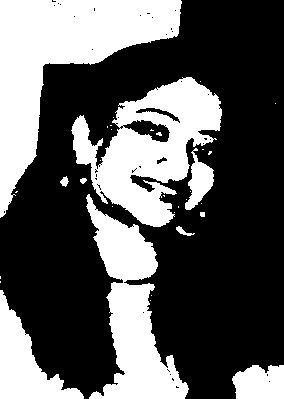Am "I" real or unreal?
I am currently reading Radhakrishna's book Indian Philosophy. Had discovered it in the Sophia College library while research, and had really liked it. Discovered a copy at my grandmother's place in Delhi. Apparently, it belonged to my great grandfather, Pandit Mauli Chanda Sharma, supposedly an intellectual. My granny gifted to me over a year ago, but it had been lying neglected in my cupboard, until recent frustation with my life forced me to take it out and indulge in some meaningless speculation about the purpose of life and existence.
I found a very interesting excerpt about the reality or unreality of ourselves, our existence, and here it is:
" How are we to acoount for this world? The emperical variety is there bound in space, time and cause. If the self is the one, the universal, the immutable, we find in the world a mass of particulars with opposed character. We can only call it non self, the object of a subject. In no case is it real.
The principal categories of the world of experience, time, space and cause are self contradictory. They are relative terms depending on their constituents. They have no real existence. Yet they are not non existent. ( What is existence? What is non existence? Is it a physical sensation?) The world is there and and we work in it and through it. We do not and cannot know the why of this world. It is this fact of it's inexplicible existence that is signified by the word माया (Maya). (Does this mean the world the world is mutable and unreal and will ultimately be changed/ destroyed while the self will not do any of these things? Where will the self go if there is no world to exist in? To define it's universalness against? )
To ask what is the relation between the absolute self and the empirical flux, to ask why and how it happens, that there are two, is to assume that everything has a why and a how. To say that the infinite becomes the finite is or manifests itself as finite is on this view utter nonsense. The limited cannot express or manifest the unlimited. The moment the unlimited manifests itself in the limited, it itself becomes limited. To say that the absolute degenerates or lapses into the empirical is to contradict its absoluteness. No lapse can come to a perfect being. ( By the way, When exactly had we established through irrefutable logic and proof beyond any doubts that the self was infact perfect, real, univeral and unchanging?) No darkness can dwell in perfect light. We cannot admit that the supreme which is changeless, becomes limited by changing. To change is to desire or to feel a want , and it shows lack of perfection. (going by this, can we actially ever admit to anything at all, since admitting to one thing would mean, that that alone is true and unreal and there are no other possibilities. That everything else is false and unreal. That's too narrow and limited for me!) The absolute can never become and object of knowledge, for what is known is fimite and relative. Our limited mind cannot go beyond the bounds of time, space and cause, nor can we explain these, since every attempt to explain them assumes them. ( Does this mean they are inassumable? And thus infinite?) Through thought, which is itself a part of the relative world, we cannot know the absolute self. (But then, from where has the concept of "absolute self" arisen, but from our own thought/ experience/ sense- perception- which are again objects of the emperical world. How can a subject/ real thing come from an object/ unreal thing? How do we "know" an "absolute self" "exists"? What is knowing? Is it a-priori? A-posteriori?
Christian science defines time as "error" or illusion.
Kant says " if time is a quantification of duration of events, a spatial measurement used to quantify the extent and duration of and between events, then what about altered states of consciousness, as experienced by dyslexics, mad people and those using hallucinogens. As the boundaries for experiencing time are removed, so is its relevance.)
Labels: perception, philosophy, self, space, time


0 Comments:
Post a Comment
<< Home